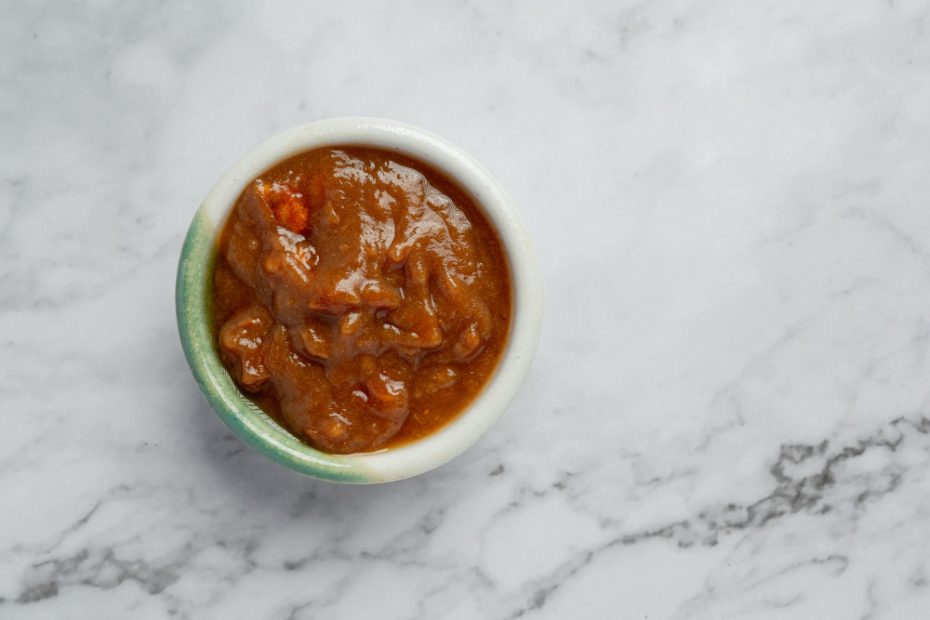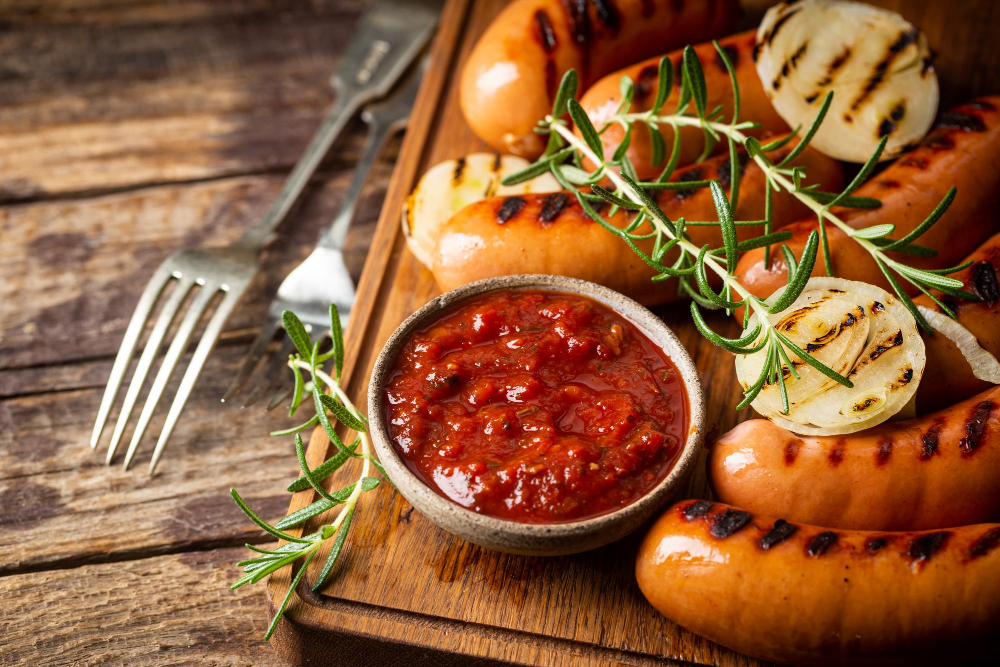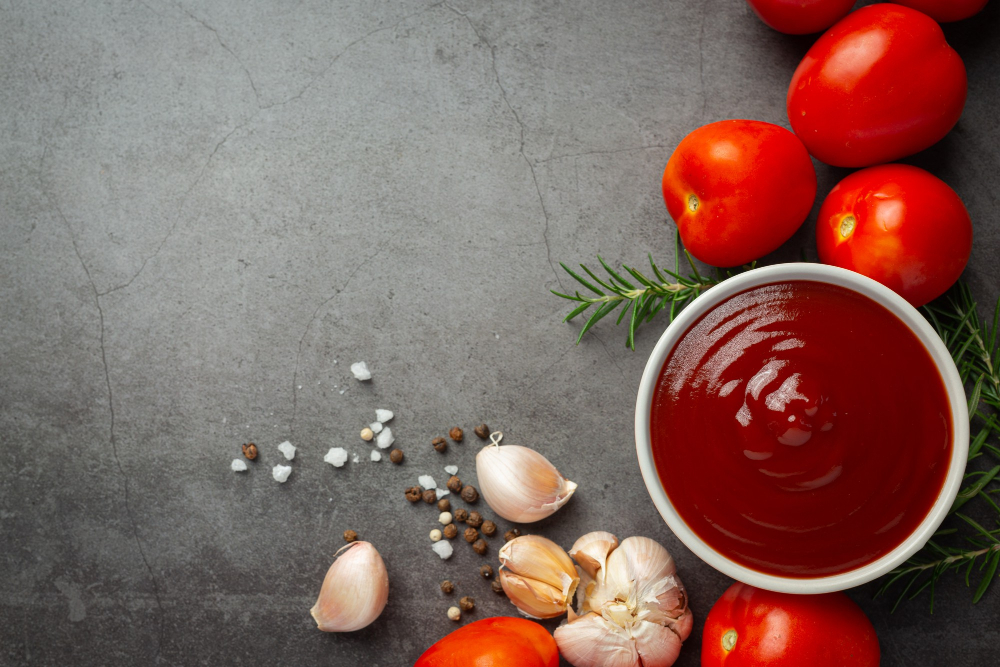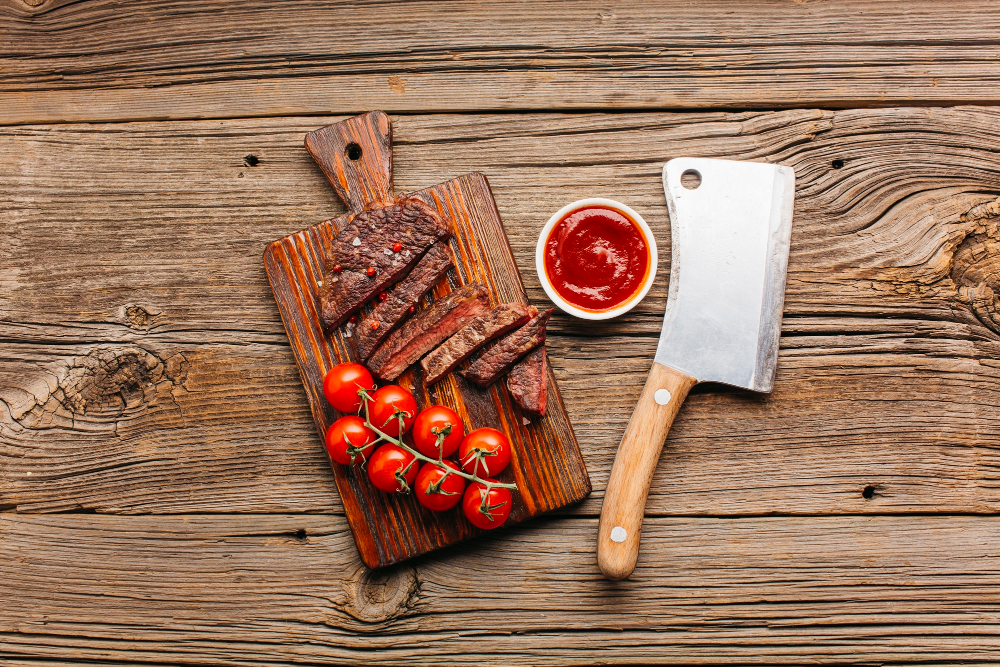How long should you marinate meat before grilling?
Marinating meat before grilling can greatly enhance its flavor, tenderness, and juiciness. Whether you’re preparing a succulent steak or a mouthwatering chicken breast, marinating allows the flavors to penetrate deep into the meat, resulting in a delicious and memorable meal. But how long should you marinate your meat before throwing it on the grill? Let’s find out.
The importance of marinating
Marinating meat is not only about adding flavor; it also serves as a tenderizer. The acidic components in marinades, such as vinegar, citrus juice, or wine, break down the proteins in the meat, resulting in a more tender and juicy final product. Additionally, the combination of herbs, spices, and other ingredients in the marinade infuses the meat with aromatic flavors that can elevate your grilling experience.
The marinating process
To marinate meat properly, you’ll need to follow a few basic steps. First, choose a marinade that complements the type of meat you’re grilling. For example, a tangy citrus-based marinade works well with chicken, while a rich and savory marinade pairs excellently with beef.
Once you’ve selected your marinade, place the meat in a shallow dish or a resealable plastic bag, ensuring it is fully submerged. **It is essential to refrigerate the meat while marinating to prevent bacterial growth**, so make sure to keep it in the fridge for the entire process.
Marinating times
The marinating time can vary depending on the type and thickness of the meat. Here are some general guidelines:
- Poultry: Chicken and turkey typically benefit from marinating for at least 30 minutes to a maximum of 24 hours, depending on the cut. However, avoid marinating for too long, as the acid can start to denature the meat proteins, resulting in a mushy texture.
- Beef: Beef cuts like steak or roasts can benefit from marinating for 2 to 24 hours. Tougher cuts, such as flank or skirt steak, may benefit from longer marinating times (up to 24 hours) to help tenderize the meat.
- Pork: Pork can be marinated for 30 minutes to 24 hours, depending on the recipe and cut. Lean cuts like tenderloin may not require extended marinating, while tougher cuts like ribs or shoulder can benefit from longer marinating times.
- Seafood: Seafood, such as fish or shrimp, is more delicate and should not be marinated for too long. A quick 15-30 minute marinade is usually sufficient to add flavor without overpowering the natural taste of the seafood.
It’s important to note that marinating times can vary based on personal preference and the specific recipe you’re using. If you prefer stronger flavors, you can opt for longer marinating times, but be cautious not to exceed the recommended time for your chosen meat.
“Marinating meat allows the flavors to seep into every bite, adding depth and complexity to your grilled dishes.” – Chef John Doe
How Long to Marinate Meat Before BBQ?
Marinating meat before barbecuing is a great way to enhance the flavors and tenderness of your dish. Whether you’re grilling steaks, chicken, or fish, marinating can add depth and juiciness to your meats. But how long should you marinate your meat before firing up the grill? Let’s find out.
The Importance of Marinating
Marinating involves soaking meat in a mixture of ingredients like oil, vinegar, citrus juices, herbs, and spices. This process not only adds flavor but also tenderizes the meat by breaking down its fibers. The length of time you marinate your meat depends on the type and thickness of the cut.
Marinating Times by Meat Type
| Meat Type | Thickness | Recommended Marinating Time |
|---|---|---|
| Steak (beef) | 1 inch or less | 30 minutes to 1 hour |
| Steak (beef) | 1 inch or more | 1 to 2 hours |
| Chicken | Breasts or thighs | 1 to 4 hours |
| Fish | Fillets or steaks | 15 to 30 minutes |
Note: Marinating for longer periods does not always mean better results. Over-marinating can lead to mushy or overly acidic meat, so it’s essential to follow the recommended times.
Tips for a Successful Marinade
- Ensure your marinade contains an acid (like vinegar or citrus juice), oil, and seasonings to enhance flavors.
- Allow proper airflow by patting the meat dry before marinating and leaving small gaps between pieces.
- Refrigerate your meat while marinating to keep it safe from bacteria growth.
- For thicker cuts, consider using a vacuum-sealed bag to allow the marinade to penetrate more effectively.
“Marinating is like giving your meat a flavor bath – just be careful not to soak it for too long!”
By following the recommended marinating times and tips, you can achieve tender, flavorful meat that will impress your guests at your next barbecue. Experiment with different marinades and enjoy the mouthwatering results!
Do You Cover Bowl When Marinating?
Marinating is a popular technique used to infuse flavors into meat, fish, or vegetables before cooking. But one common question that often arises is whether you should cover the bowl when marinating. The answer to this question may vary depending on the ingredients and personal preferences.
Covering the Bowl: Pros and Cons
There are arguments for both covering and leaving the bowl uncovered during marination. Let’s explore the pros and cons of each approach:
- Covering the Bowl: Many chefs recommend covering the marinating bowl to prevent cross-contamination, keep the ingredients moist, and enhance flavor absorption. This method helps trap the marinade’s aromas, preventing them from escaping and allowing them to penetrate the food more deeply.
- Leaving the Bowl Uncovered: Some argue that leaving the bowl uncovered allows for better air circulation, which can help the marinade penetrate the food more effectively. Additionally, leaving the bowl uncovered can result in a slightly drier surface, promoting better browning and caramelization during cooking.
If you choose to cover the bowl, it is advisable to use a plastic wrap, lid, or airtight container. Alternatively, if you decide to leave the bowl uncovered, make sure to place it in the refrigerator to prevent spoilage and maintain food safety.
“Covering the bowl during marination can help lock in flavors, but leaving it uncovered may lead to better browning and texture during cooking.”
Factors to Consider
When deciding whether to cover the marinating bowl, consider the following factors:
- The length of marination: Longer marination periods may benefit from covering the bowl to prevent drying out.
- The ingredients: Some ingredients, such as dairy-based marinades or acidic mixes, may require covering to avoid spoilage or affecting other food items in the refrigerator.
- Personal preference: Ultimately, personal preference plays a significant role in deciding whether to cover the bowl during marination. Experiment with both methods to find what works best for you and your desired outcome.
Remember that marinating is an art form, and there is no one-size-fits-all approach. Understanding the pros and cons of covering the bowl during marination can help you make an informed decision and achieve deliciously marinated dishes every time.
Does meat need to be submerged in marinade?
Marinades are a popular way to enhance the flavor and tenderness of meats before cooking. But does the meat actually need to be fully submerged in marinade for it to be effective? Let’s explore this question.
Understanding Marinades
Marinades typically consist of a combination of liquids, such as oil, vinegar, and various seasonings. They are used to add flavor, tenderize tough cuts of meat, and help retain moisture during cooking.
While it is commonly believed that meat needs to be completely submerged in the marinade to benefit from it, this is not necessarily the case. The marinade’s flavors and tenderizing properties can still penetrate the meat even if it isn’t fully submerged.
Marinating Techniques
There are a few different techniques you can use to marinate meat:
- Submerging: This is the traditional method where the meat is fully immersed in the marinade. It ensures that all parts of the meat come into contact with the marinade evenly.
- Basting: With this method, you periodically brush the meat with the marinade while it cooks. It adds flavor and keeps the meat moist without requiring full immersion.
- Injecting: This technique involves using a marinade injector to inject the marinade directly into the meat. It is ideal for large cuts of meat or poultry.
The Importance of Resting Time
Regardless of the marinating technique used, it is essential to allow the meat to rest after marinating. This allows the flavors to fully develop and the tenderizing process to take place.
“Marinating meat can improve its taste and texture, even if it is not fully submerged.”
How Long Can Raw Chicken Sit in Marinade?
The Importance of Marinating Chicken
Marinating chicken is a great way to infuse it with flavor and enhance its tenderness. The marinade typically consists of a mixture of oils, acids (such as vinegar or citrus juice), herbs, spices, and other seasonings. It is important to marinate chicken properly to ensure the best results. This includes knowing how long raw chicken can safely sit in the marinade.
Refrigerating Raw Chicken in Marinade
To prevent foodborne illnesses, it is crucial to store raw chicken and its marinade properly. When marinating chicken, always keep it refrigerated during the entire process. Bacteria can multiply rapidly at room temperature, increasing the risk of food poisoning. Place the chicken and marinade in a covered container or resealable bag and refrigerate it immediately.
Marinating Times for Raw Chicken
The length of time that raw chicken can sit in marinade depends on several factors, including the ingredients used and the size or thickness of the chicken pieces. As a general rule, it is safe to marinate chicken for up to 24 hours in the refrigerator. However, marinating it for as little as 30 minutes can still impart some flavor.
Marinating Recommendations
If you are short on time, you can use a vacuum sealer or marinating container to speed up the process. These tools help the marinade penetrate the chicken faster. Additionally, avoid reusing marinades that have come into contact with raw meat, as they may contain harmful bacteria. Instead, make extra marinade to use as a sauce or dressing.
Remember, food safety is paramount when handling raw chicken. Always ensure that the chicken is cooked to an internal temperature of 165°F (74°C) to kill any potential bacteria.
How do you get marinade to stick to chicken?
Marinating chicken is a great way to infuse it with flavor and make it tender and juicy. However, sometimes the marinade doesn’t seem to stick to the chicken as well as we’d like. Here are some tips to help you get that delicious marinade to adhere perfectly to your chicken.
1. Score the chicken
Scoring the chicken by making shallow cuts on its surface helps the marinade penetrate deeper and allows it to stick better. This also helps in tenderizing the meat.
2. Use an acidic ingredient
Acidic ingredients like lemon juice, vinegar, or yogurt act as natural tenderizers and help the marinade stick to the chicken. The acid breaks down the proteins in the meat, allowing the flavors to penetrate and adhere better.
3. Marinate for longer
Allowing the chicken to marinate for a longer period of time gives the flavors more time to develop and adhere to the meat. For best results, marinate the chicken for at least 30 minutes, but ideally, marinate it overnight in the refrigerator.
4. Pat the chicken dry
Before applying the marinade, make sure to pat the chicken dry with a paper towel. Excess moisture on the surface of the chicken can prevent the marinade from sticking properly.
5. Brush or baste
While grilling or cooking the chicken, brush or baste it with the marinade to enhance the flavor and help it stick to the chicken. This will create a delicious glaze on the exterior of the chicken.
“Marinating chicken is not just about adding flavors but also about making it tender and juicy. These tips will ensure your marinade sticks to the chicken and enhances its taste.”
Try out these tips to make your marinade stick to chicken like a pro. You’ll be rewarded with flavorful and succulent chicken that will leave everyone asking for your secret recipe!
Conclusion
While marinating meat by submerging it in a marinade is a common practice, it is not the only way to achieve flavorful and tender results. Whether you choose to fully immerse the meat, baste it, or inject it with marinade, the key is to give it enough time to rest and allow the flavors to marry. So, go ahead and experiment with different marinating techniques to elevate your next meat dish!
Marinating chicken adds wonderful flavors to your dishes, but it’s important to handle it safely. Keep raw chicken and its marinade refrigerated at all times and follow recommended marinating times. By taking these precautions, you can safely enjoy delicious and flavorful marinated chicken without compromising your health.
Note: The information provided in this article is for general guidance only and should not be considered as professional advice.



